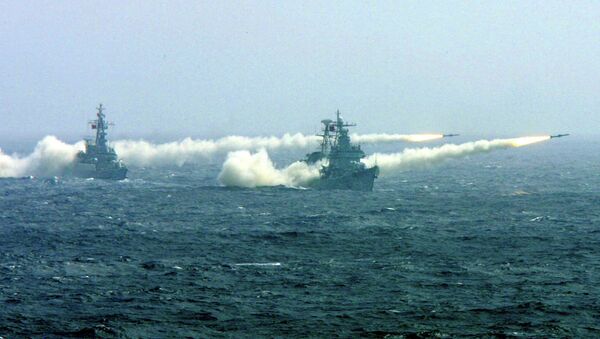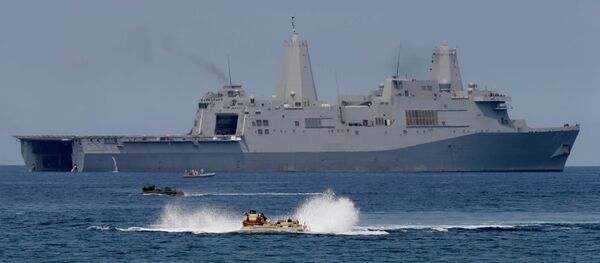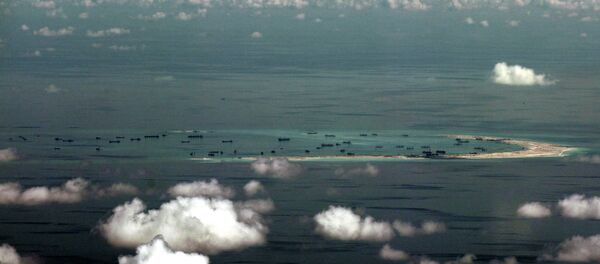The Rim of the Pacific exercise, known as RIMPAC, is one of the world’s largest military drills. Hosted by the United States, it occurs every two years off the coast of Hawaii.
In the midst of heated tensions between the US and China, it was unclear if Beijing would take part in the upcoming exercises. But on Thursday, the Chinese government indicated that it would lay those differences aside, for the time being.
"Joining these military exercises will be beneficial to improving the Chinese navy’s ability to contend with non-traditional security threats," said Wu Qian, a spokesman for China’s Ministry of Defense.
"At the same time, it will also be beneficial to defending China and professional exchanges and pragmatic cooperations with the relevant countries’ navies."
Beijing will send an undetermined number of warships to take part in the drills.
Wu also took the opportunity to address the South China Sea tensions.
"Needless to say, military relations between China and the US have some difficulties and obstacles."
Washington has criticized Beijing over its development of artificial islands in the Spratly archipelago, accusing China of trying to establish an air defense zone. Beijing maintains that it has every right to build within what it considers to be its own territory, and that the islands will be used primarily for humanitarian purposes.
The US Navy has conducted a number of aggressive patrols within the 12-mile territorial limit of China’s land reclamation projects and flown surveillance flights over the islands.
A number of US lawmakers have criticized the Obama administration for allowing China to participate in the games, arguing that Beijing should be barred over its South China Sea actions.
"I would not have invited them this time because of their behavior," Arizona Senator John McCain said last summer.
"In the last number of years they had filled in 60 acres of land around these [disputed] islands; in the last year they filled in 6000 acres and they are putting in a runway. I don’t think there is any doubt about their territorial ambitions."
Others argued that China should be allowed to take part so that Beijing can witness US capabilities first-hand.
"Direct exposure to US equipment, personnel, and capabilities should give the Chinese a more realistic assessment of what the US and its allies are capable of doing," said Nicole Forrester, formerly with the Pacific Forum Center for Strategic and International Studies, according to Military.com.
"Mistaken notions of US decline are likely to be corrected in the process."





